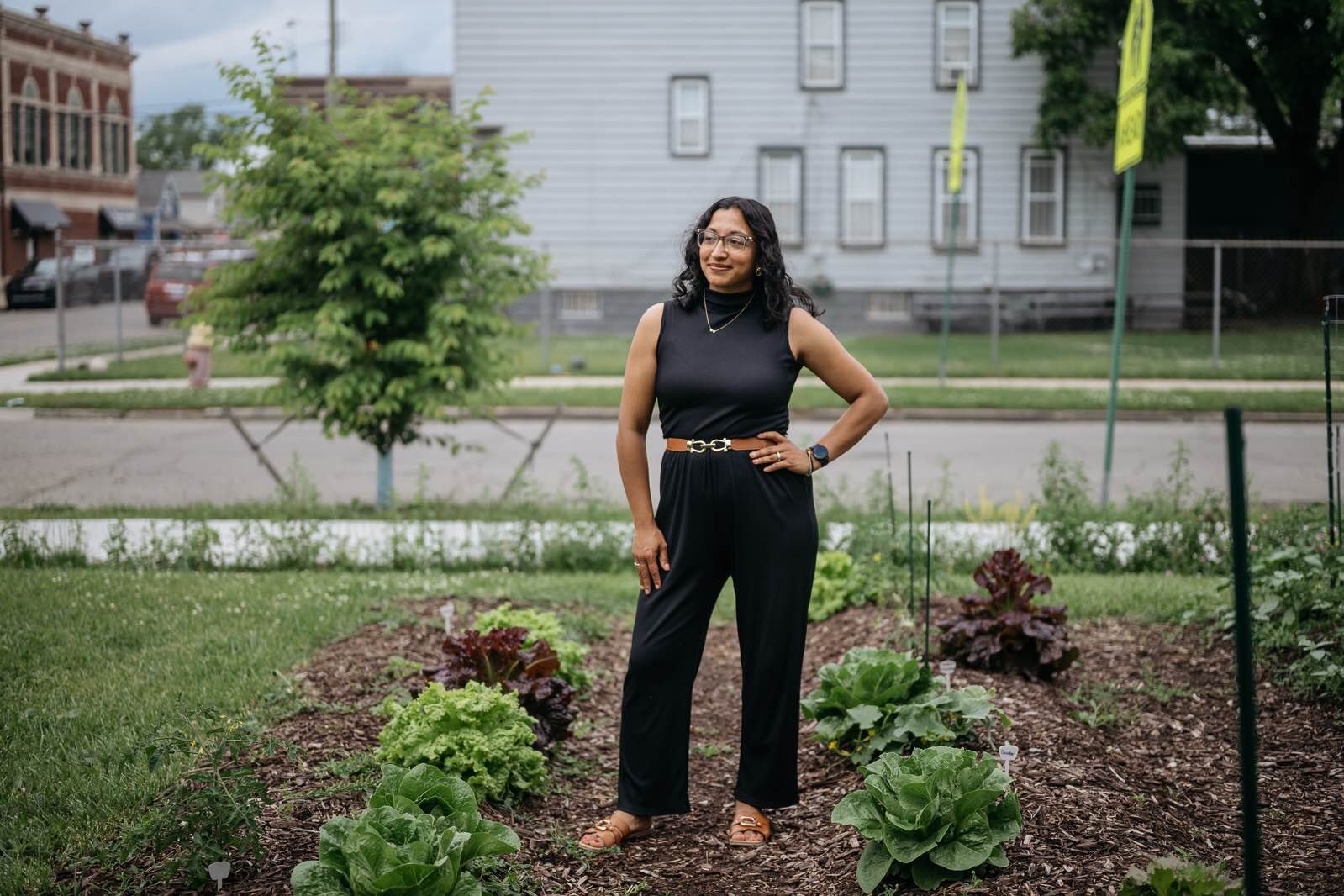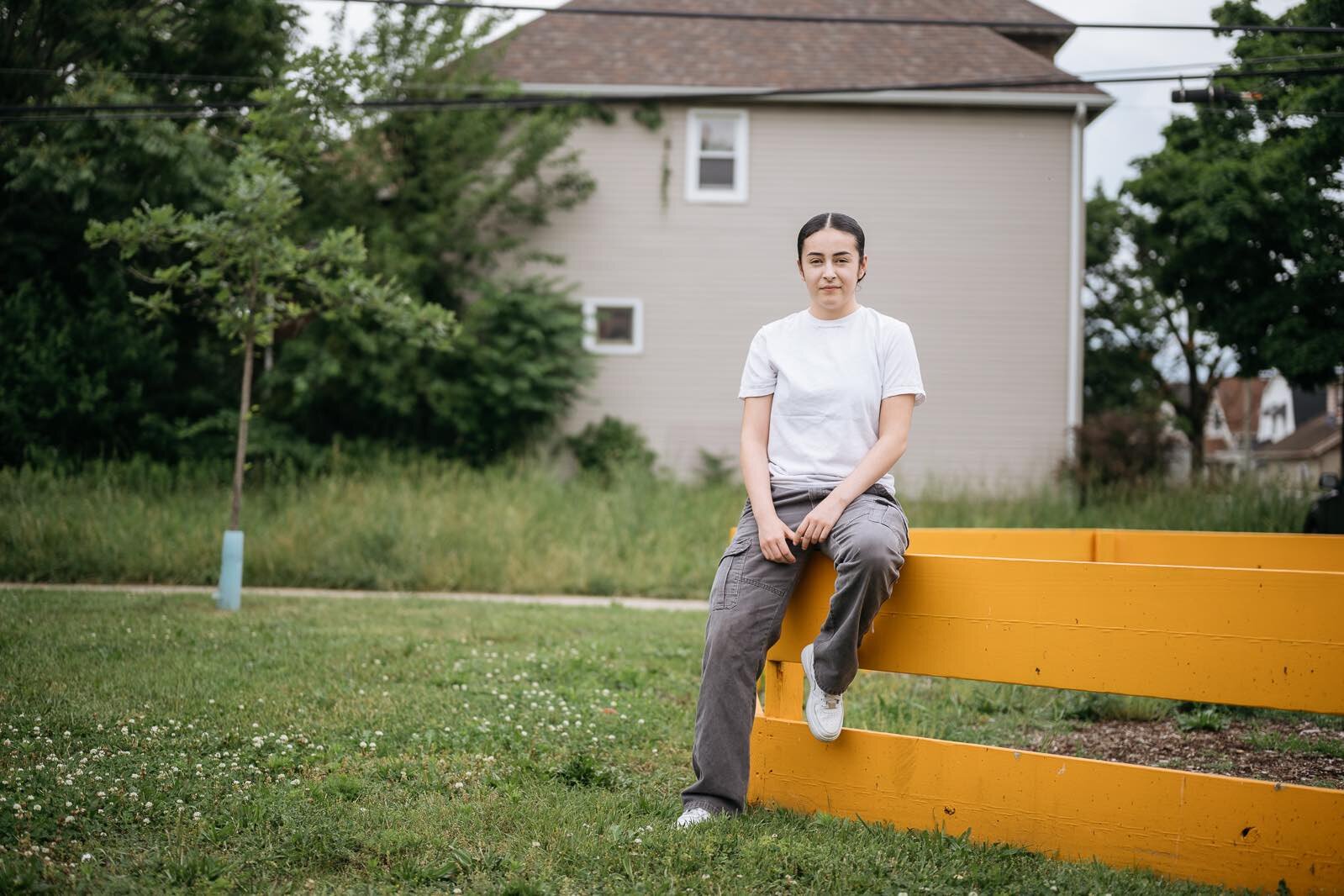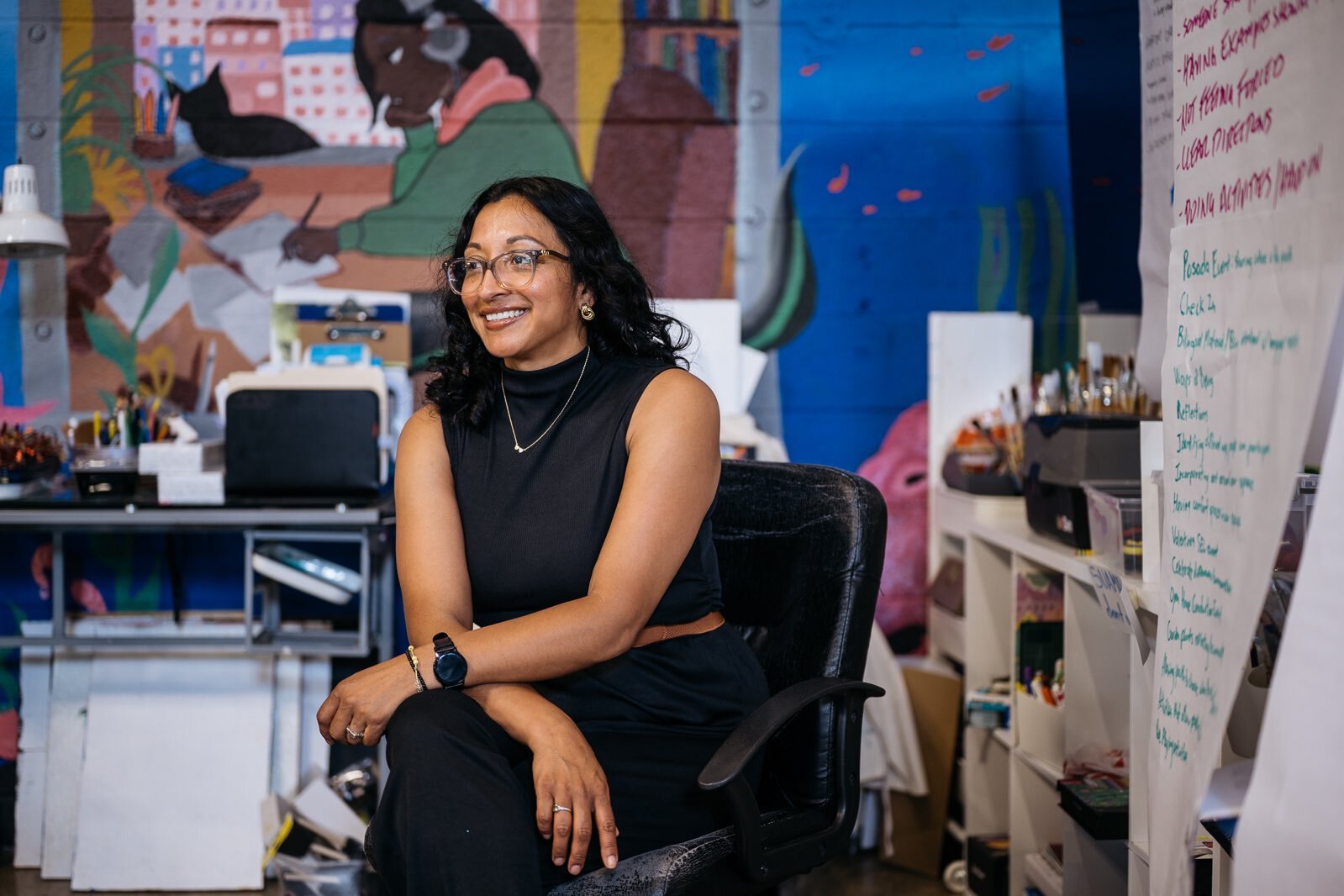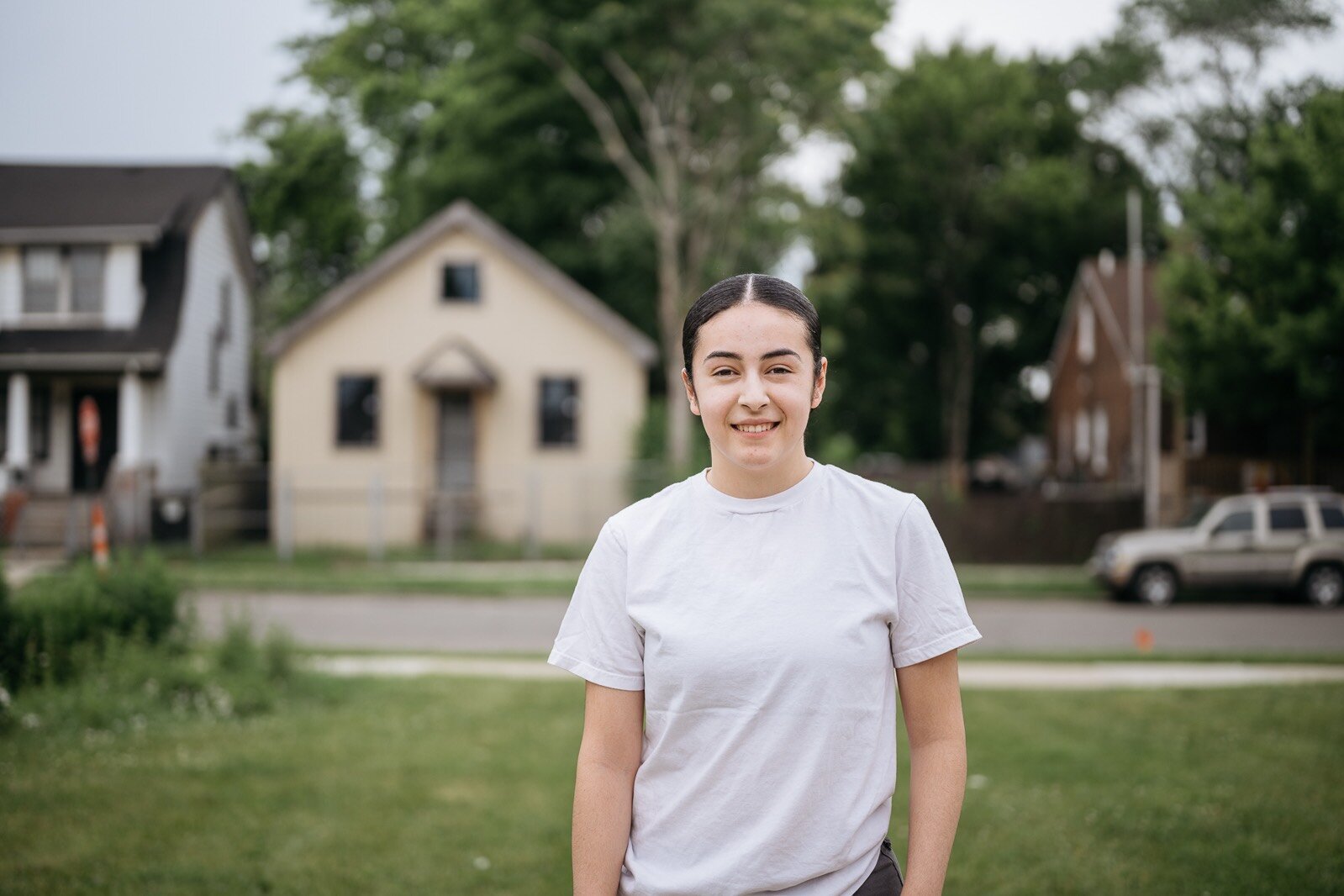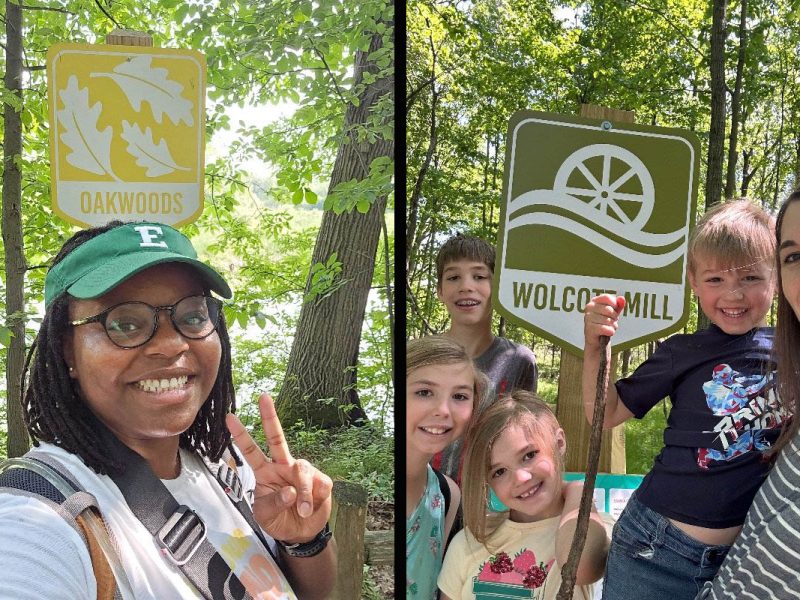Preparing Southwest Detroit youth for power and purpose
Urban Neighborhood Initiatives’ Leaders in Training program equips Southwest Detroit youth with career skills, mentorship, and leadership opportunities rooted in community development.
In the Springwells neighborhood of Southwest Detroit, a new generation of leaders is gaining skills, confidence, and community through the Leaders in Training (LIT) program at Urban Neighborhood Initiatives (UNI).
LIT supports youth ages 14 to 24 by creating a pathway—starting with early exposure in childhood and extending through paid internships and mentorship—that helps participants prepare for both careers and college.
It’s part of UNI’s long-term investment in a neighborhood where young people often face systemic barriers to employment and education, aligning with the organization’s mission to “build a safe, thriving environment where people want to live, work, and play.”
“The aim is to help young people tap into their full potential,” says Vania Ruiz, UNI’s senior director of Youth Workforce Development and Education.
“Through personalized support, by providing them a success coach, career exploration, opportunities, hands-on paid and unpaid work experiences, barrier removal… the aim of the program, and our goal is, through all this, is to help young people build skills to help clarify future career pathways.”
Leading by experience
For 21-year-old Wayne State University student Melany Sanchez, that support has been transformative.
“I think my favorite part of the program is that they help you explore who you want to be,” she says. “At some point I wanted to be a barber. And in the summer, they were able to place me within a barber shop, so they kind of help me navigate the things that I want.”
Sanchez first got involved with LIT during her freshman year of college, after a supervisor from UNI’s after school program encouraged her to apply. Since then, she’s become both a mentor and a role model for younger kids in the neighborhood, often ones who remind her of herself.
“In the afterschool program, I was a peer mentor for the kids. We developed the schedules for the kids, and we developed what activities they were gonna do,” she says. “It makes me feel really good about myself. Sometimes I wish that I would have found the program sooner when I was younger, so I could have done it too. But I feel like I get to experience it through them, which is really cool.”
Year-round investment
Ruiz says the program’s evolution has deepened its reach in the Springwells community. What started as seasonal job placements has grown into a year-round ecosystem of workforce development and leadership training.
Thanks to funding from the Detroit Employment Solutions Corporation, the year-round model allows UNI to build sustained relationships with youth and track their long-term growth. “Now we were able to work with young people year to year and actually see that progress from when they started to when they eventually went to college or got a job,” Ruiz says.
That continued support, Sanchez says, has made a meaningful difference in her own journey, providing her with resources and encouragement that have pushed her to places she wouldn’t have been able to go otherwise.
“A lot of the time they do help financially.” she says. “They’ve provided books for me, a backpack. They introduced me to a lot of scholarships that I’ve actually won.”
She adds, “[The staff] definitely make me feel heard and seen. Every time I have a concern, I don’t feel uncomfortable reaching out to them. And that’s not just my success coach. It’s a lot of the people here; I reach out to them on a regular basis.”
That kind of one-on-one connection is core to the LIT approach.
“We gauge success for a young person, really, by focusing on how many positive adult relationships that they have in their lives,” Ruiz says. “This is the program where we say, ‘Come as you are, wherever you are in your path, and our role or job is to help you explore different things and support you to reach whatever success means for you.’”
Youth development is community development
Today, Ruiz says, former participants like Sanchez are helping lead the next generation.
“Right now, out of the six career pathways that we have, five of those are being currently led by past program participants,” she says.
To formalize that leadership pipeline, UNI is launching a credentialed Youth Development Practitioner apprenticeship. “This will give them an opportunity to earn an industry recognized credential through the Department of Labor,” Ruiz says. “So really trying to help set them up for success even further… giving them all the tools that they need to be able to be effective leaders in their community.”
Sanchez, who grew up in Springwells, says working in the same schools she once attended makes her proud of the difference she’s making.
“I think it’s because I grew up here, and I like to see [the neighborhood] grow,” she says. “These are the schools that I went to, and I get to work at these same schools. I get to make a difference in the kids that look like me.”
Ruiz says this kind of neighborhood-based, youth-led work deepens commitment and builds long-term leadership.
“Being part of a program that directly impacts the physical aspects of your neighborhood in a positive way will want to keep you here… and then you’ll continue to want to be a leader and be involved,” she says.
Many participants, like Sanchez, stay connected through college and even return to lead. Through a new ambassador program, these participants become a bridge between UNI and their campuses, supporting peers with similar experiences and helping bring in new students to get involved.
The bigger picture
Sanchez says she hopes people in power recognize how vital programs like LIT are for Detroit’s youth.
“I feel like a lot of the statistics are against people in Detroit, and people in power should really fund programs like this because a lot of good things come out of it,” she says. “A lot of leaders come out of it, people who could be in office as well.”
Ruiz agrees and emphasizes that these investments ripple far beyond the neighborhood.
“Programs like this give young people opportunities that may be limited due to the stigma that is associated with where they live,” Ruiz says. “If these programs go away, it does not just impact the neighborhood, it impacts the local economy, and it impacts Michigan overall.”
Still, if LIT is any indication, Springwells already holds the key to its future, especially when youth are trusted to lead.
“I feel like a lot of people here don’t get seen,” Sanchez says. “But this program really shows us that we matter. That we can do something.”
Resilient Neighborhoods is a reporting and engagement series examining how Detroit residents and community development organizations work together to strengthen local neighborhoods. It’s made possible with funding from The Kresge Foundation.
